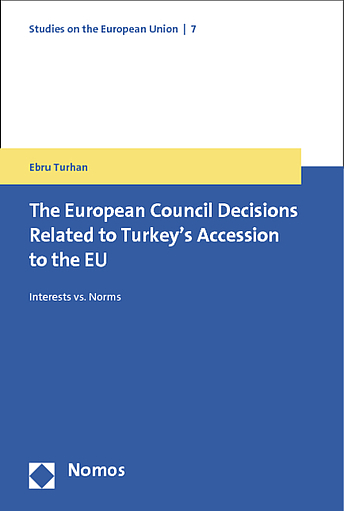englischWhat has been the most important dynamic behind the European Council decisions pertaining to Turkey’s accession to the EU? To answer this question, the present book elucidates the key determinants of 1989, 1997, 1999 and 2004 European Council decisions related to Turkey’s membership in the EU. Drawing on two major theoretical approaches towards enlargement, namely, rationalism and constructivism, the book focuses on two key dynamics particularly useful for the explanation of EU enlargement: interests and norms. In terms of rationalist approaches, a differentiation is made between realism and neoliberalism, which emphasizes the key role of security interests and economic interests, respectively. As far as the constructivist school is concerned, the book concentrates on moral norms and ethical norms.
The elucidation of dynamics behind European Council decisions related to Turkey requires a two-level analysis that focuses on both EU enlargement politics and Member States’ enlargement politics. At the Member States level, in-depth analysis is made of the formation and impact of British, French, German and Greek enlargement politics vis-à-vis Turkey. The main finding of the present book is that whereas both interests and norms affected the construction of the European Council decisions related to Turkey’s membership in the EU, the security interests of the EU and its Member States acted as the key determinant of these decisions and, thus, trumped both economic interests as well as moral and ethical norms.
Der Band erläutert die Kernfragen der Entscheidungen des Europäischen Rats im Hinblick auf einen möglichen EU-Beitritt der Türkei mithilfe einer Zwei-Ebenen-Analyse. Im Mittelpunkt stehen dabei die Erweiterungspolitik der EU und die der Mitgliedstaaten. Bezugnehmend auf Rationalismus und Konstruktivismus, lenkt der Band die Aufmerksamkeit auf zwei Dynamiken, mit deren Hilfe die EU-Erweiterung erklärt werden kann: Interessen und Normen.


